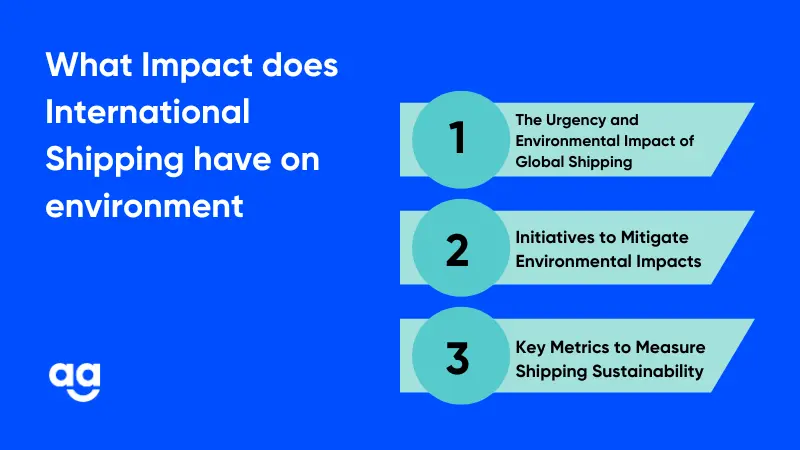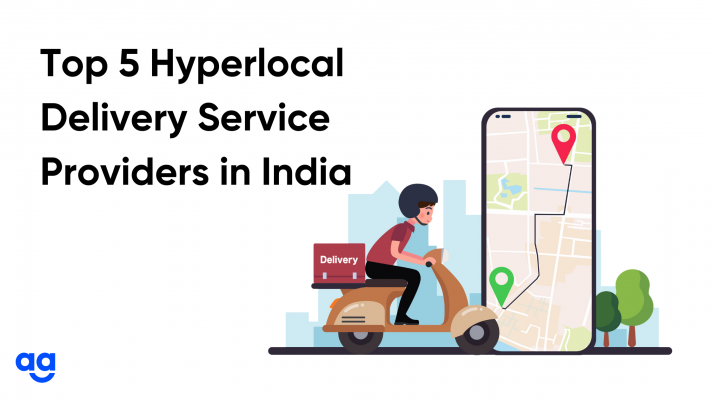Planning Pays Off: 5 Strategies to Get the Most Out of Your Delivery Speed Choice
June 18 , 2024
5 min read
Introduction
The shipping industry is prominent in the global trade scenario, whether it is related to international courier services or domestic same-day deliveries. It facilitates 80% of all industries and eCommerce solutions globally.
Did you know that this sector is also responsible for 3% of global CO₂ emissions? This shows the significance of green shipping practices in improving sustainability in the shipping industry.
In this guide, let’s examine ways in which international courier services can implement robust, sustainable solutions to mitigate their environmental impact!

The Urgency and Environmental Impact of Global Shipping
Today, organizations are focused on adopting eco-friendly practices. More than 80% of customers are ready to pay a high cost for green shipping.
Shipping impacts the environment in the following ways:
- Air Pollution: GHG and CO2 emissions from shipping massively contribute to climate change.
- Water Pollution and Marine Life: The shipping sector, particularly by sea, causes ecological and economic damage through noise pollution. This can hamper the feeding patterns of marine species and threaten their survival.
- Atmospheric Pollution: The diesel engines used in shipping services produce pollutants that affect air quality and lead to health risks.
Initiatives to Mitigate Environmental Impacts
The shipping industry, specifically the international courier services, requires coordinated efforts to reduce the environmental impact. This includes creating stringent laws, implementing regulatory measures, using technological advancements, and encouraging industry collaboration. Key initiatives include:
Utilization of Alternative Fuels
Domestic and international courier services are exploring alternative energy sources for their fleets. Scientists predict that the shipping sector can achieve full decarbonization by 2050 if zero-emission fuels constitute 5% of international shipping fuel by 2030.
Research focuses on using liquid natural gas, liquefied petroleum gas, hydrogen, ammonia, methanol, and even solar energy. The industry needs to modify engines and encourage systems that can accept dual fuels. These alternatives can be blended with heavy fuel oil – HFO or very low-sulfur fuel oil – VLSFO to run engines.
Optimization of Fuel Consumption
Technology can manage fuel consumption. Industries need to use advanced technologies like AI, big data, and the Internet of Things to compare historical and real-time data.
Such details help the industry reduce fuel consumption and greenhouse gas emissions. AI-based solutions also help in continuous carbon dioxide emission reductions.
Adoption of Renewable Energy
Using wind, solar, and wave energy for propulsion and onboard operations enhances sustainability. Courier services can use technologies like exhaust gas cleaning systems to minimize harmful emissions.
Operational Efficiency and Performance Improvement
It is high time that international courier services and shipping solutions start using:
- Optimal Routing: Using data analytics and weather forecasts to optimize routes reduces fuel consumption and emissions.
- Speed Management: Adjusting shipping speeds for fuel efficiency without compromising schedules.
- Waste Management: Proper disposal and recycling onboard contribute to sustainability.
Creating Stringent Laws and Regulations
Strict laws, guidelines, and regulations related to shipping can enforce sustainable practices for shipping companies. Moreover, companies embracing green practices gain a competitive edge as customers prefer environmentally responsible partners.
Key Metrics to Measure Shipping Sustainability
Here are some ways in which industries can check sustainability impact:
- Carbon Emissions: Track emissions to minimize environmental impact. You can minimize the effect by optimizing routes and adopting cleaner technologies.
- Fuel Efficiency: Advances in technology have produced more fuel-efficient last-mile delivery trucks, like the Ford Transit Connect, which gets 25.5 MPG.
- Energy Consumption: Transitioning to electric vehicles can make supply chains more energy-efficient.
- Waste Generation: Online shopping generates 4.8 times more packaging waste than offline shopping. The shipping solutions must reduce waste with the help of packaging optimization and other recycling initiatives. A survey found that 59% of companies are using sustainable materials, such as recycled products.
- Environmental Adherence: Businesses must comply with environmental regulations. These measures include adherence to emission limits and waste disposal regulations.
Conclusion
The shipping industry needs to exercise vigilance by adopting sustainable shipping practices and making all possible efforts to protect the environment. This will also help businesses enhance resilience and brand credibility.
All kinds of domestic and international courier services are integrating sustainability and relying on advanced technologies. Such energy-efficient solutions help shipping companies reduce emissions and improve profitability.
Partner with Shipyaari and explore sustainable international courier services that will help your business reduce the environmental impact of shipping. Shipyaari Delta is an excellent product that you can use to send automated WhatsApp communications to your end customers.
Try out a demo for free today t
Frequently Asked Questions
Sustainable shipping in international courier services is all about taking measures to reduce the environmental impact of transportation. Businesses must make an effort to minimize GHG emissions by optimizing resource use.
International courier services can prioritize eco-friendly practices such as:
- Using recyclable or sustainable packaging materials.
- Opting for compact packaging to reduce transportation emissions.
- Selecting efficient transportation routes.
One of the primary environmental challenges is reducing one’s carbon footprint. Today, this concern is massively contributing to GHG emissions.
Governments across nations can introduce strict policies and shipping regulations. Grants, subsidies, and tax incentives launched by the government can further promote green initiatives.
Suggested Reads
Hyperlocal Personalization: Tailoring Experiences for Local Customers
Introduction The eCommerce industry in India has witnessed a rapid growth of hyperlocal services in
Continue ReadingDec


















 Shipping
Shipping







